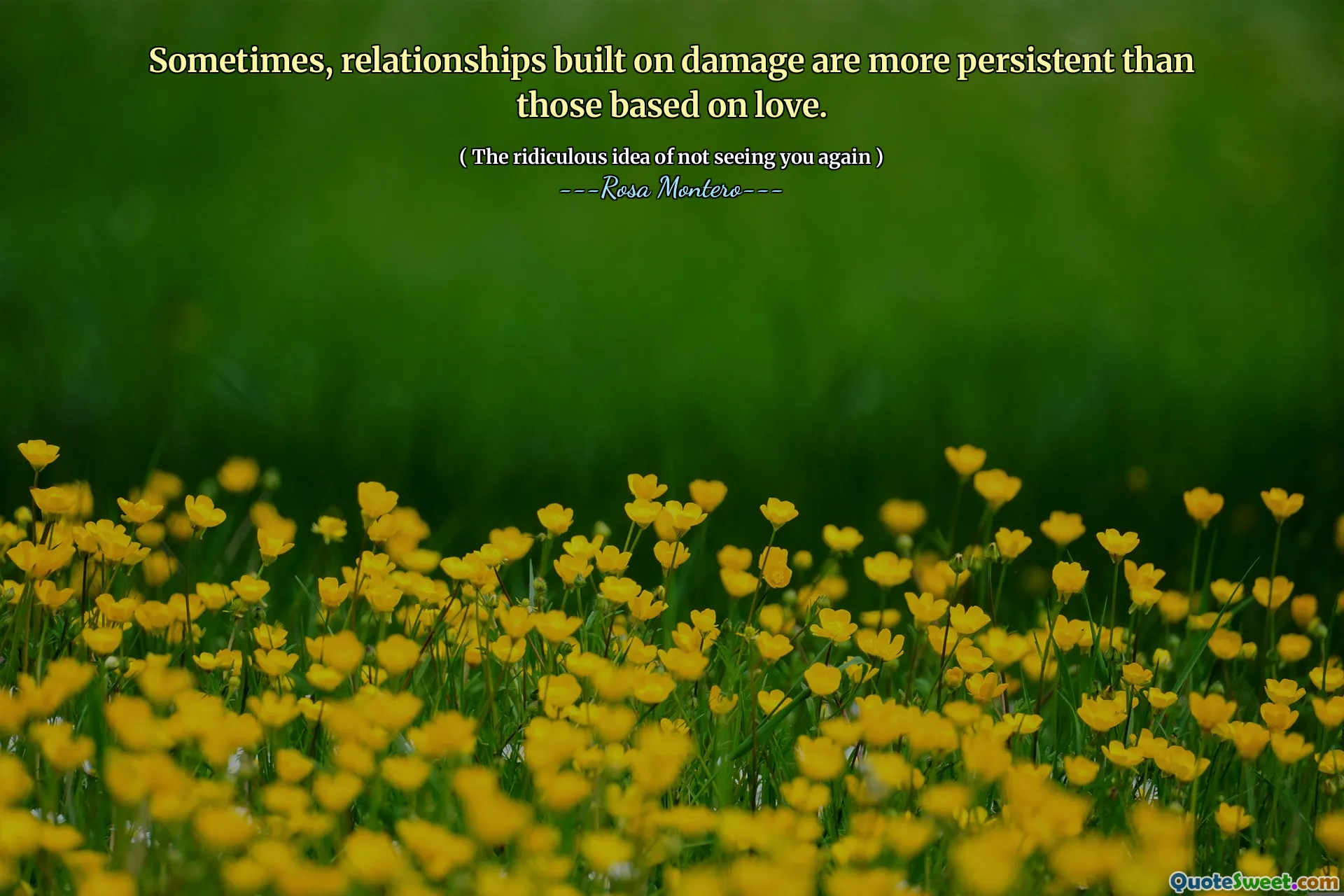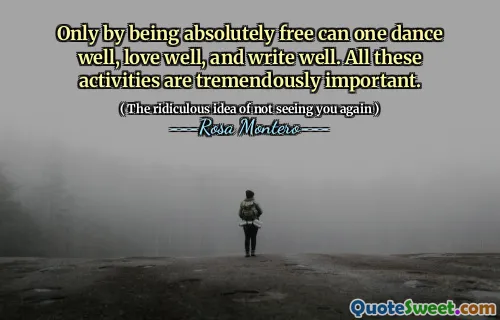
Sometimes, relationships built on damage are more persistent than those based on love.
The quote highlights a profound and often unsettling truth about human relationships: sometimes, the bonds forged through pain, conflict, or trauma can become more entrenched and difficult to sever than those rooted in genuine affection and love. This phenomenon can be understood through various psychological and emotional lenses. When relationships are established amidst conflict or injury, they often involve complex feelings of attachment, dependency, and even guilt. The familiarity of conflict, the familiar patterns of pain, can create a paradoxical comfort, making it harder to let go even when the relationship is harmful.
This persistence of damaging relationships can stem from multiple factors. Fear of loneliness or abandonment, guilt associated with leaving someone who has hurt us, or a belief that this is the only way to stay connected can reinforce these bonds. Additionally, significant emotional investment might lead individuals to cling to these toxic dynamics, convinced they are necessary or justified. They might also experience cognitive dissonance, where the recognition of harm is overshadowed by a belief that the relationship is worth suffering through.
Understanding this dynamic is crucial for personal growth and emotional health. It reminds us that love is not only about passion or happiness but also about respecting ourselves enough to recognize when a relationship becomes harmful. Breaking free from ties founded on damage requires courage and self-awareness, confronting the uncomfortable truth that not all persistent relationships are healthy or worth maintaining. True love involves respect, kindness, and mutual growth—things that are incompatible with cycles of harm.
Recognizing these patterns empowers us to seek healthier connections, to heal the wounds of past relationships, and to build relationships grounded in care and genuine respect rather than pain and damage.







